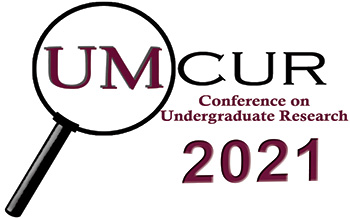Project Type
Presentation
Faculty Mentor’s Full Name
Laurie Minns
Faculty Mentor’s Department
Biological Sciences
Abstract / Artist's Statement
Peer-Leader Activities in the Biology Classroom: Effects on Student Confidence in the Course and Knowledge of Discussion Topics
College students in STEM majors often report experiencing feelings that their courses are overly competitive, unsupportive, and that the professors seem apathic or unwelcoming. A promising approach to creating a more comfortable and supportive environment within the biology classroom is the utilization of peer-led activities. This study aims to investigate whether the student-reported confidence in the learning topic and in the overall course were affected by the completion of the peer activity, and additionally, whether the students who indicated positive post-activity perceptions were more likely to correctly answer the peer-activity questions when reintroduced on the midterm. The students were expected to complete limited pre-work on the topic outside of class, which was then expanded on during the in-class peer activity. Likert scale surveys were distributed before and after peer-led activities to assess student perceptions. This study was reviewed by the University of Montana Institutional Review Board (#186-19) and given exempt status. Only results from students who consented to FERPA were included. The data indicated a positive correlation between a higher confidence rating and a better understanding of the covered material. The use of peer-led activities in biology classes may lead to higher class score averages and an increased retention of STEM majors.
Category
Life Sciences
Peer-Leader Activities in the Biology Classroom: Effects on Student Confidence in the Course and Knowledge of Discussion Topics
Peer-Leader Activities in the Biology Classroom: Effects on Student Confidence in the Course and Knowledge of Discussion Topics
College students in STEM majors often report experiencing feelings that their courses are overly competitive, unsupportive, and that the professors seem apathic or unwelcoming. A promising approach to creating a more comfortable and supportive environment within the biology classroom is the utilization of peer-led activities. This study aims to investigate whether the student-reported confidence in the learning topic and in the overall course were affected by the completion of the peer activity, and additionally, whether the students who indicated positive post-activity perceptions were more likely to correctly answer the peer-activity questions when reintroduced on the midterm. The students were expected to complete limited pre-work on the topic outside of class, which was then expanded on during the in-class peer activity. Likert scale surveys were distributed before and after peer-led activities to assess student perceptions. This study was reviewed by the University of Montana Institutional Review Board (#186-19) and given exempt status. Only results from students who consented to FERPA were included. The data indicated a positive correlation between a higher confidence rating and a better understanding of the covered material. The use of peer-led activities in biology classes may lead to higher class score averages and an increased retention of STEM majors.
